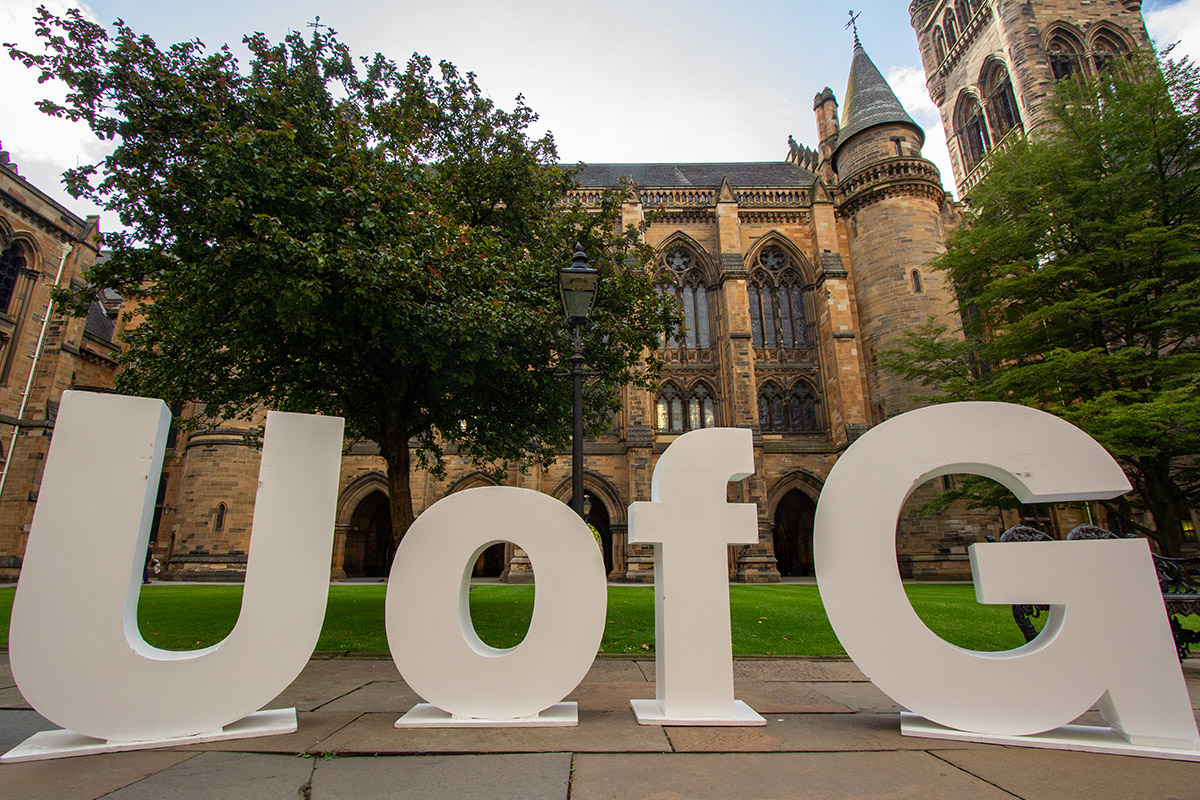
29 Feb 2024
A report led by the University of Glasgow with domestic abuse charity SafeLives Scotland addresses ‘critical’ failings in service access for LGBTQ+ victims of sexual violence and domestic abuse in Scotland.
The stakeholder report finds that LGBTQ+ victims of sexual violence and domestic abuse are often left in extremely high risk and unsafe situations. They face many barriers in accessing safe and timely help from services, which are poorly resourced and tooled to provide inclusive support to victims and survivors.
‘Stakeholder Parliamentary Roundtable Report on LGBTQ+ Intimate Partner Violence’ was published today (29 February) as part of LGBTQ+ History Month. It was authored by Dr Steven Maxwell, of the UofG’s School of Social and Environmental Sustainability, and SafeLives, the UK-wide charity dedicated to ending domestic abuse.
The World Health Organisation (2021) defines intimate partner violence (IPV) as behaviours by a former or current intimate partner that involves physical violence, sexual abuse/violence, psychological abuse, and/or controlling behaviours, leading to significant wellbeing harm.
The report and its recommendations were discussed at a Scottish Parliament roundtable on 8 February, chaired by the Right Hon. Collette Stevenson, MSP. This was attended by multiple stakeholders, including NHS Lothian, Safe Lives, Police Scotland, THT Scotland, Rape Crisis Scotland, LGBT Youth, Waverley Care, Edinburgh City Council, and Trans Alliance.
Key issues arising from the report include:
The report also makes multiple urgent recommendations to the Scottish Government and services for an enhanced national action plan, provision of competent safe space services, and comprehensive provision of workforce education.
Collette Stevenson MSP said: “It was an honour to host the recent roundtable event in Parliament and hear more about challenges facing the LGBTQ+ community in terms of intimate partner violence.
“Too many LGBTQ+ people who have experience of domestic abuse feel invisible and that support services don’t work for them. Gaining an insight from people with lived experience is important to understand how we can make meaningful change - and I was pleased that we could bring together various stakeholders in the Scottish Parliament.
“The launch of today’s report will continue the momentum - shining a light on the damaging effects of domestic abuse in LGBTQ+ relationships, which is often unreported or glossed over - and help politicians, policymakers and other stakeholders in shaping policies and services that are inclusive and tackle these issues.
“There are several recommendations in the report and I hope to lead a debate on this subject so that MSPs can discuss this in depth.”
Dr Steven Maxwell of the University of Glasgow, roundtable organiser and report author, said:
“Domestic abuse experiences of LGBTQ+ victims and survivors are overlooked and unheard. One in 3 LGBTQ+ adults will experience domestic abuse in their lifetime, the same level as heterosexual women. It has a profound impact on the mental health of individuals, including PTSD, depression, and suicidality.
“The report highlights multiple endemic failures to provide safe and timely support to LGBTQ+ victims of sexual violence and domestic abuse. LGBTQ+ victims may feel they will be disbelieved if they report abuse to the police or seek support from public services. When they do seek support, often they cannot find any inclusive support, and can be met with prejudice and long waiting lists. There are many cases where LGBTQ+ victims have been left in very high-risk unsafe situations, with nowhere to go. An impending reduction in budget to already stretched sector services will worsen the situation.
“There are multiple steps that can reduce the high-risk precarious situations that LGBTQ+ victims are experiencing. The starting point is for the Scottish Government to look at the national policy Equally Safe designed for men’s violence against women and girls, in which LGBTQ+ domestic abuse experiences are invisible. A tailored national action plan would provide visible competent measures that meet the LGBTQ+ population needs. Stronger prevention, service inclusion messages, more inclusive safe spaces and practitioner workforce education would improve the situation. Without change, LGBTQ+ victims will continue to be isolated and placed in unsafe situations with vastly insufficient support.”
Jessica Denholm, Head of SafeLives Scotland, said: “SafeLives Scotland had the privilege of being one of the organisations invited to attend this roundtable, and we were heartened to hear meaningful discussion of what inclusion of LGBT+ experiences of domestic abuse in our national response to this abuse, could and should look like. Across policy and practice, it’s vital that we can understand the gendered nature of domestic abuse and wider VAWG, which is mostly experienced by women, without losing sight of, or undermining, LGBT+ experiences of abuse. I really welcome this research and look forward to seeing, and supporting, where it leads next.”